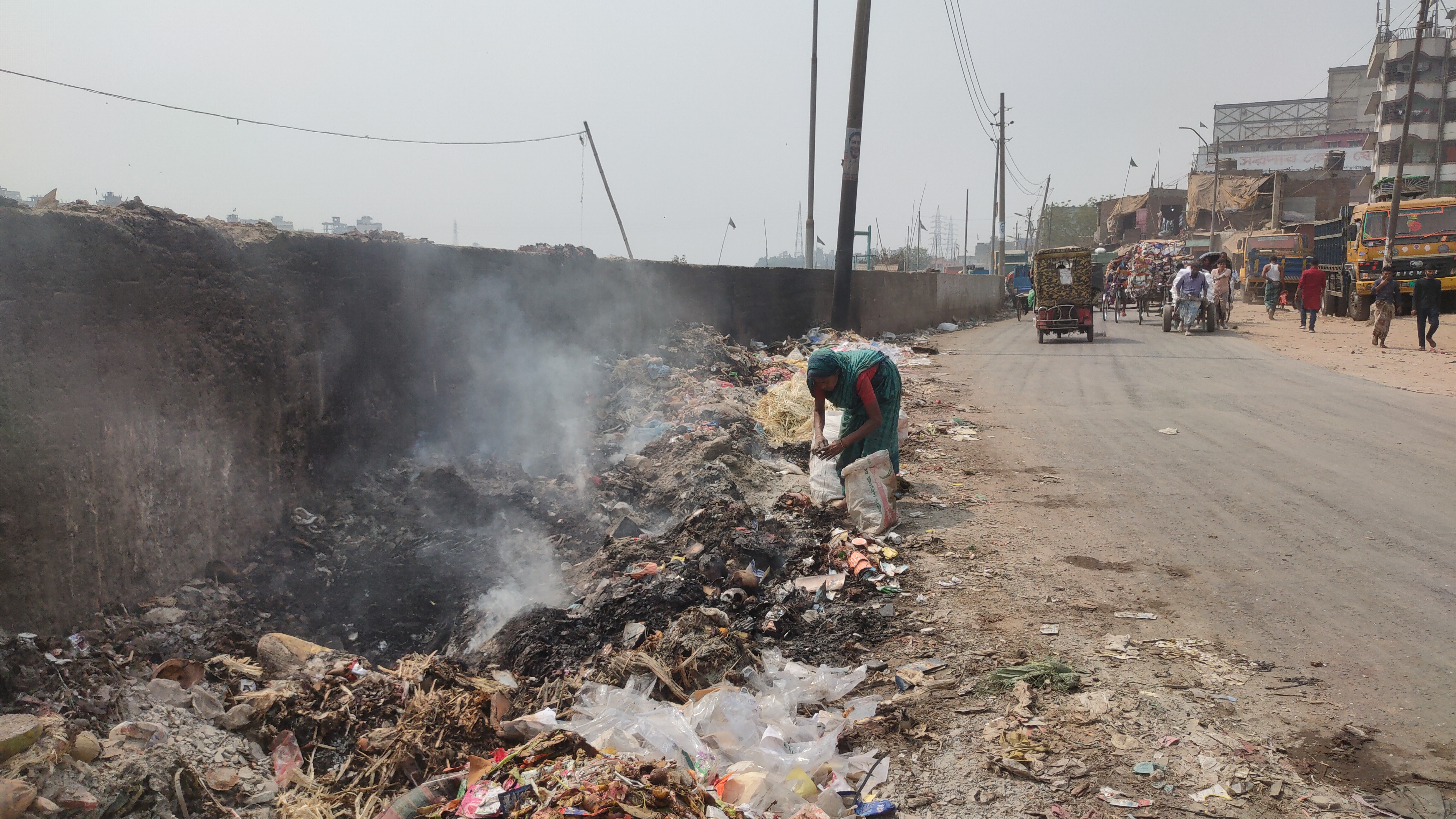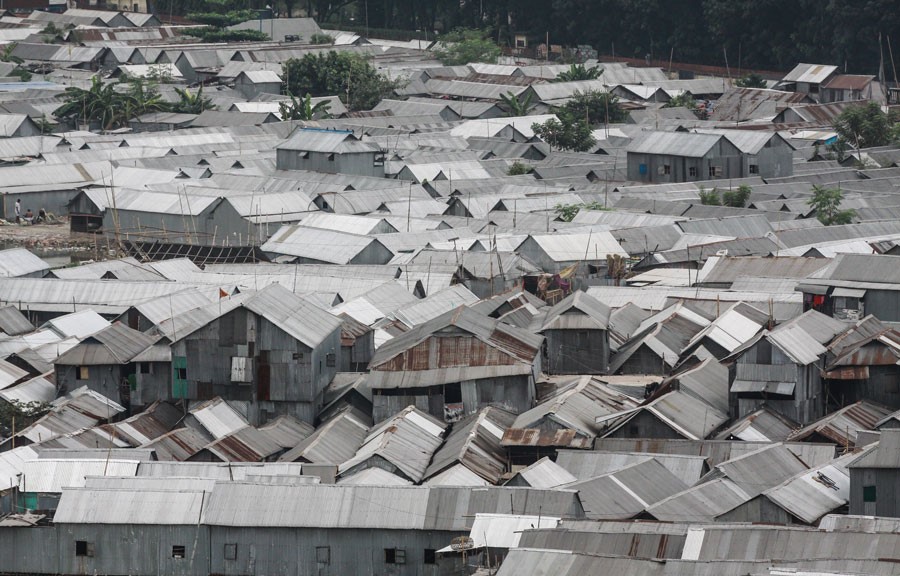
Every year during the winter season, Dhaka consistently ranks at the top of the global list of cities with the poorest air quality, as measured by the Air Quality Index (AQI). The air quality in Bangladesh is a major environmental problem that needs our attention. Based on the assessment of the US Air Quality Index (AQI) over the past seven days, the air quality in Dhaka, Bangladesh, exhibited a range of conditions. On December 21, 2023, the air quality in Dhaka was relatively better, marked by a recorded Air Quality Index (AQI) of 134, though it remained categorized as "Unhealthy for Sensitive Groups". However, the situation drastically worsened on December 22, 2023, when the air quality hit its nadir with an AQI of 403, classified as "Hazardous." Analyzing the data over the span of seven days emphasizes the potential dangers posed by Dhaka's air quality. There are more and more signs that urbanization, industry, and population growth are affecting the air we breathe. It's a serious problem that we all need to understand: the air in Bangladesh, where we cherish our vibrant cities and lush landscapes, is not as fresh as it should be. To stop the coming air pollution disaster, we need to pay immediate attention and take strong action.
What's the Fuss About Air Pollution?
You might wonder, what's the big deal about air pollution? Well, imagine breathing in air that's not good for your health. That's what happens when there are too many tiny particles and harmful gases in the air. In Bangladesh, especially in busy places like Dhaka and Chattogram, this is becoming a real headache. Dhaka, the bustling capital of Bangladesh, has been entrenched in a persistent battle against air pollution. The city's air quality tends to deteriorate, reaching unhealthy levels during the winter months, only to see marginal improvements during the monsoon season.
Particulate Matter (PM) Levels:
Bangladesh, particularly its urban centers like Dhaka and Chattogram, has faced challenges related to elevated levels of particulate matter (PM). PM2.5 (particles with a diameter of 2.5 micrometers or smaller) and PM10 can originate from various sources, including vehicle emissions, industrial activities, and biomass burning. High concentrations of PM can have adverse effects on respiratory health and overall air quality.
Where is this Bad Air Coming From?
Cars and Bikes Everywhere: When you're stuck in traffic, have you ever looked around and seen all the cars and bikes? Even though they're useful, the smoke they release is not good. Carbon monoxide and nitrogen dioxide are some of the things that are in it that can make the air dirty. A rise in the number of cars and trucks, often along with traffic jams, is a major cause of air pollution. Pollutants like carbon monoxide (CO), nitrogen oxides (NOx), and volatile organic compounds (VOCs) are released by combustion engines.
Factories Doing Their Thing: While factories are great for making things, they do sometimes release not-so-great stuff into the air. Pollution can happen when chemicals from plants mix with the air. Bangladesh is quickly becoming more industrialized, which has made the air dirty. Concerns have been raised about the pollution that industries release, such as sulfur dioxide (SO2) and nitrogen oxides (NOx). There have been ongoing efforts to control industrial pollution and raise standards for air quality.
How Does Dirty Air Affect Us?
Health Troubles: It's bad for your health to breathe in dirty air. Kids and older people should avoid it because it's bad for their health. It can cause coughing, trouble breathing, and much worse heart problems. Bangladesh's worsening air quality has been linked to several health problems, especially lung illnesses. More people are getting asthma and bronchitis, which hurts children and the elderly, who are already more likely to be sensitive.
Nature Takes a Hit Too: Humans are not the only ones who hurt. It's also felt by trees, plants, and animals. Pollution that is too high can hurt plants and animals and throw off the balance of our world. The pollutants that are put into the air have a huge effect on the delicate balance of ecosystems, which includes our woods, rivers, and animals. This effect on the environment is dangerous to the biodiversity that makes our areas unique.
What Can We Do About It?
- Promoting Sustainable Transportation: Choosing better forms of transportation like walking, biking, public transportation, clean fuel, or less emission vehicles whenever you can be not only a practical choice but also a choice that helps clean up the air.
- Energy Conservation at Home: Simple things like turning off lights and tools when not in use become habits that help save energy. This not only saves energy but also reduces the need for power plants, which in turn lowers the waste they cause. A behavioral change communication campaign is crucial to address both economic and health-related aspects of air quality in Dhaka. Such a campaign can effectively promote practices that bring about positive changes, benefiting both the well-being of individuals and the economic landscape of the city.
- Supporting Afforestation: Since trees clean the air like superheroes, the call to plant more trees and take care of the ones we already have struck a chord as a shared duty. It's not just nice for the environment; it's an investment in a natural filter system that fights air pollution and makes our surroundings healthier overall. Not only should we plant more trees, but we should also take care of and protect the trees we already have. Encouraging urban afforestation, urban agriculture, and urban horticulture, including practices like rooftop gardening and the adoption of green building techniques, could prove effective in addressing air pollution.
- Enforce Rigorous Emission Standards: Implement and uphold stringent emission standards for both vehicles and industries, advocating for the adoption of cleaner technologies and fuels.
- Research and Development (R&D): Allocate resources to support research aimed at identifying innovative solutions to air quality challenges. Foster collaborations between academia, research institutions, and industries to drive technological advancements in pollution control and sustainable urban practices.
- Facilities Increase and Overall Development: Expand and modernize facilities dedicated to waste management, emphasizing strategies that minimize open burning and promote responsible waste disposal. Upgrade and maintain green spaces, parks, and urban forests as vital components of a healthier environment. Foster green architecture and construction practices, promoting the development of eco-friendly and energy-efficient buildings. Increasing facilities and supporting overall development in these areas would not only enhance the effectiveness of tackling air pollution but also contribute to the sustainable growth of urban environments.
It's Time for Action!
The time has come for us to take quick and serious action to deal with the widespread problem of air pollution. This is not just a call to acknowledge the problem; it is a strong call to action, urging people, communities, and nations to do more than just acknowledge the problem; they must take action to fight the looming threat of air pollution. It marks a turning point where words become actions, encouraging everyone to support the group effort to improve air quality, no matter how small their contribution may be. Incorporating both national and international collaboration as routine, ongoing initiatives, along with establishing a regular budgetary allocation rather than project-based activities, is crucial for sustained efforts in addressing air pollution. This is a call to action for big changes that emphasize that the time to take strong action against air pollution is now.
Conclusion:
In conclusion, the challenge of air pollution in Bangladesh is undeniable, yet it is a challenge well within our capacity to address. Every single one of us has the power to help clean up the air, no matter how small our acts are. We can make sure that the air we all breathe is not only clean but also good for our health by making smart, responsible choices and keeping a close eye on our surroundings. Let us start a trip together to clean up the air and protect Bangladesh's beauty for future generations.
Share this page via
More from Al Shahriar Khan


